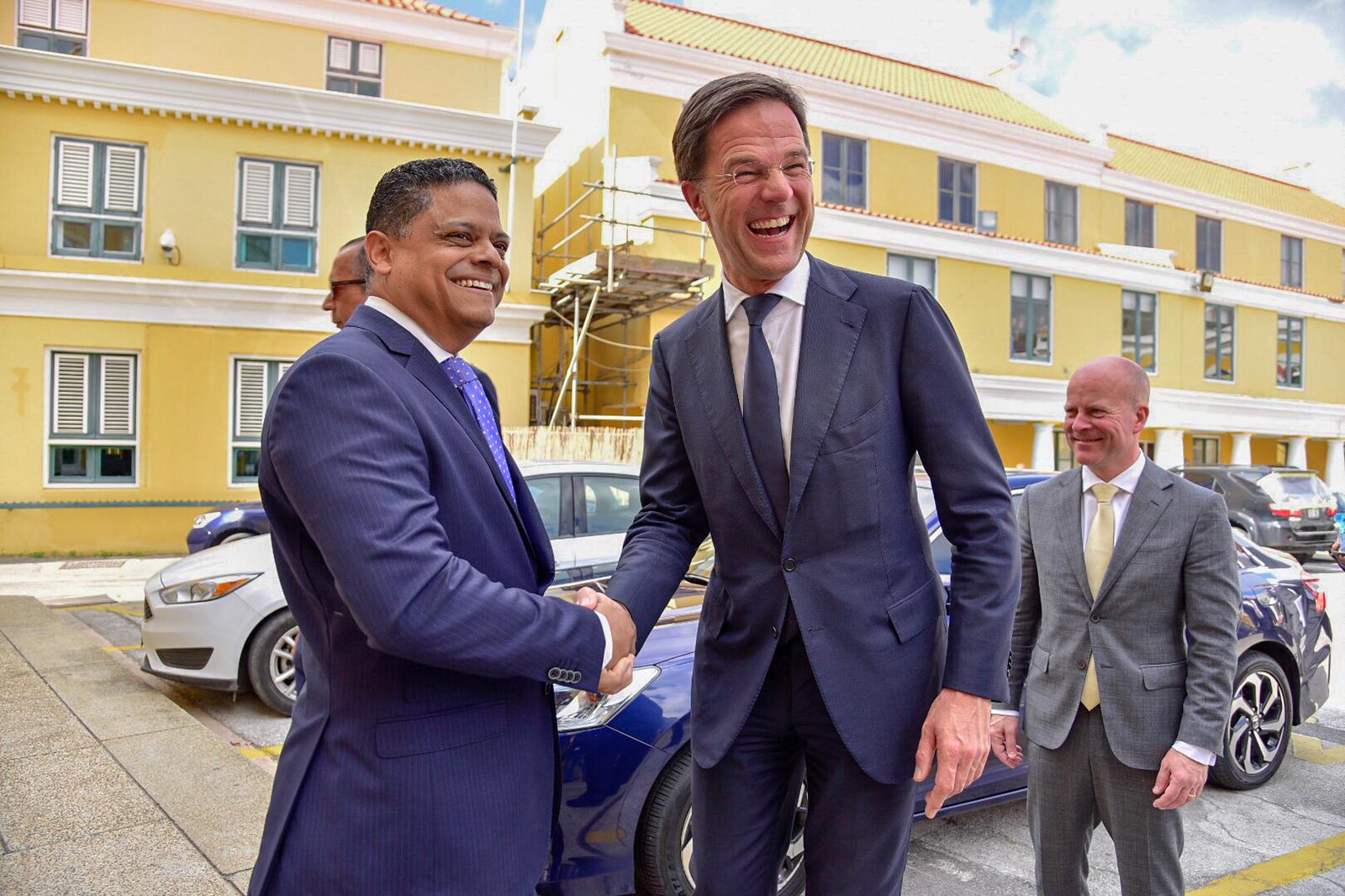Curacao’s agreement with the Dutch: heaven or hell?

PHILIPSBURG — Last week Curacao’s Prime Minister Eugene Rhuggenaath signed an agreement with Dutch Prime Minister Mark Rutte. It’s rather optimistic title is ‘Samenwerkingsconvenant Groeistrategie Curacao’ (Cooperation agreement growth strategy Curacao). It aims to improve Curacao’s financial management and to boost the stagnating economy. The interpretation of this voluntary agreement has triggered mixed feelings in Willemstad.
Dutch broadcaster NOS headlined a story based on a radio interview with its correspondent Dick Drayer with the text ‘Nederland gaat zich nadrukkelijker bemoeien met het bestuur op Curacao” (Dutch intervention with governance in Curacao will become more intense). “That was a little short-sighted,” Drayer says about the way the article was written.
In his blog De Achterkant van Curacao Drayer writes that the NOS-broadcast resulted in commotion within and outside of the government. “I have even been threatened,” he wrote, adding that the agreement is apparently a sensitive issue. The threats consisted of intimidating remarks like “we will get you” and “you won’t get into Fortí anymore.”
Drayer explains that he only spoke about the semblance of Dutch intervention, after the Dutch NOS radio presenter suggested that the agreement suggested to him that this was so. But Drayer says in response that the Rhuggenaath-government explicitly does not consider the agreement as an instruction or intervention.
Nevertheless, the agreement looks a bit like intervention: “Formally the Netherlands cannot apply administrative measures in Curacao but with the accord they did make agreements to do something about the underlying causes of for instance the problematic government finances.”
Drayer based his opinion that the agreement has the semblance of intervention on earlier Dutch interventions in Statia and Bonaire. He notes that especially the intervention in Bonaire looks similar to what Curacao has now agreed to with the Netherlands.
The agreement – written in Dutch – is crammed with bureaucratic lingo. Words like transitiebegeleider (transition manager), topkaderfuncties (critical functions for high ranking civil servants), doelmatigheidsslagen (actions to improve efficiency), organisatieontwikkelcapaciteit (the capacity to develop the organization), veranderopgave (the tedious undertaking of change) and ervaringsdeskundigen (experienced experts) make reading the document a daunting task.
This is what it comes down to. The agreement aims to improve the functioning of the government organization, improve financial management, support the development of the government organization, cooperate to boost the economy and professionalize ground exploitation.
To achieve these objectives, The Netherlands makes a transition manager available to Curacao. This manager will “help to identify projects and initiatives that are able to give a quick impulse to the execution of the growth strategy.” The manager will also see to the improvement of Curacao’s ability to execute projects and to better cooperation between ministries. Furthermore, the Netherlands will help Curacao to find suitable candidates for top functions in the civil service, for instance in the field of financial management.
The agreement states that the cooperation between ministries must improve and become more intense. To achieve this, the Netherlands offers organisatieontwikkelcapaciteit (the capacity to develop the organization) – in other words, it will send Dutch civil servants to Curacao.
The agreement is rather vague about economic cooperation. Together the Netherlands and Curacao will “research the further strengthening of economic cooperation within the kingdom and the development of facilitating mechanisms.”
Lastly, the Netherlands will support Curacao’s efforts to professionalize the management of the country’s real estate.
Drayer writes that he compared the agreement with the situation in Bonaire for good reason, pointing to the worrisome development of the government’s finances. In that context he notes that the board financial supervision (Cft) is overstepping its competencies by making agreements with Curacao about tackling its budget issues.
“Those agreements do not have a legal framework. The task of the Cft is to hold Curacao to the Kingdom law financial supervision. Nothing more, nothing less.”
Drayer writes that the Cft ignored the rules of the kingdom law twice; once by dropping the requirement that Curacao has to compensate budget deficits in the following year.
Careful reading of the agreement reveals that a lot of Dutch civil servants will come to the Ministry of Finance, Drayer notes. With this agreement the Netherlands is able to put its people in Curacao, formally under the supervision of a Dutch transition manager who does not have to give account to The Hague.”
###
Related article:
Opinion: “A semblance of intervention“


























